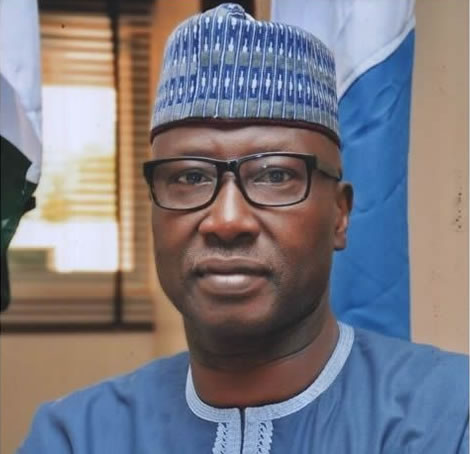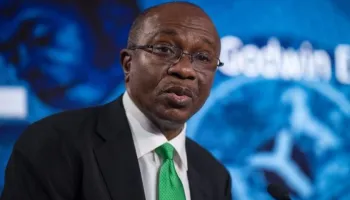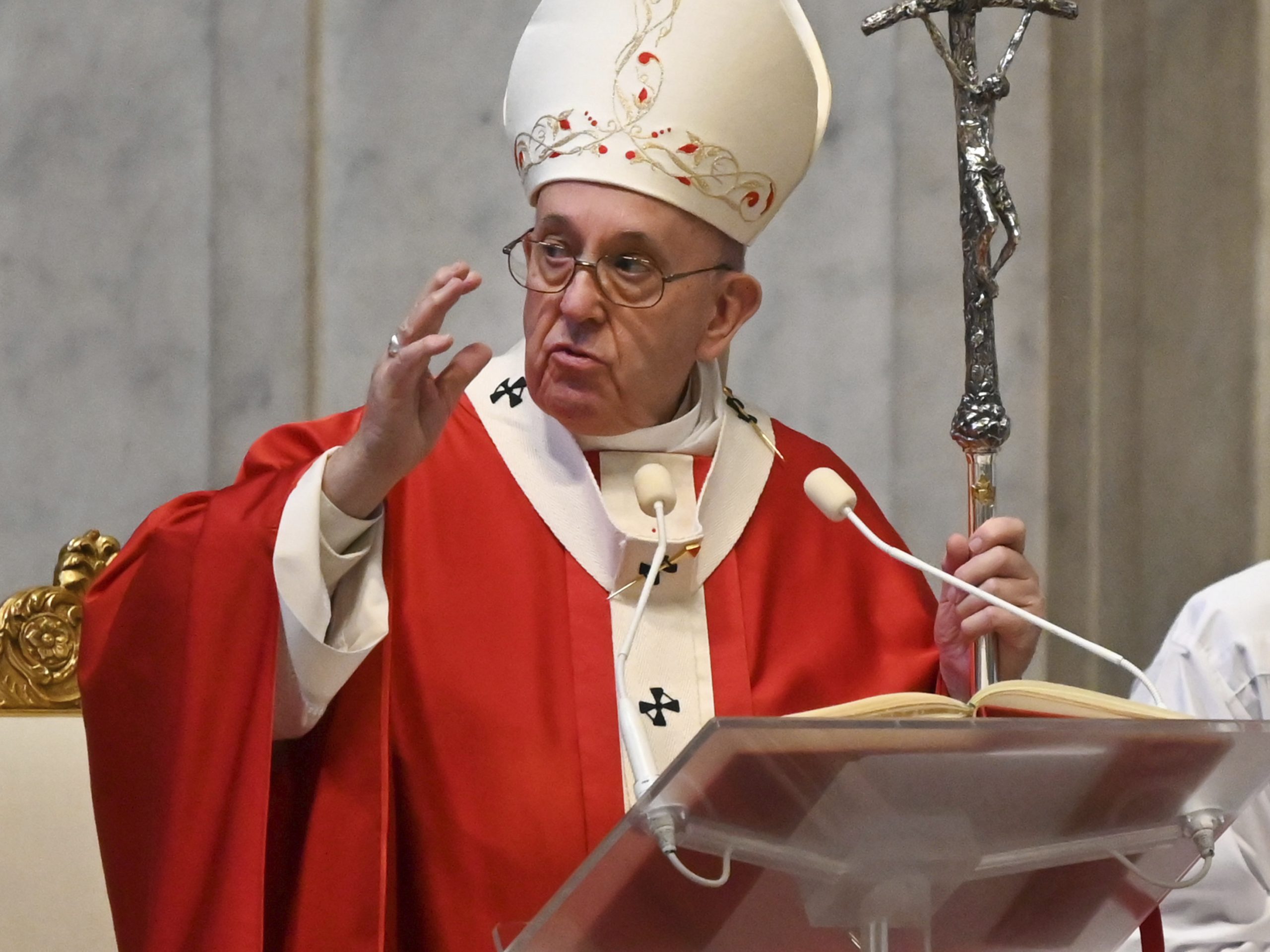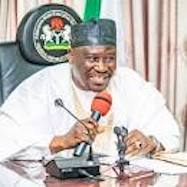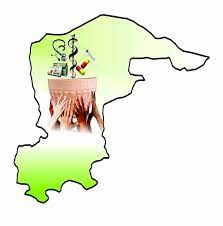Economy
We’ll Create More Jobs Via Agriculture, Arts, Entertainment, Mining – Buhari Assures

President Muhammadu Buhari has reiterated his commitment to creating more jobs, with particular focus on enabling the private sector, targeting more youthful population by streamlining priority on agriculture, arts, entertainment, mining and Information Technology.
The president stated this at a Presidential Conference with the Participants of Senior Executive Course 42 of the National Institute for Policy and Strategic Studies at the State House, Abujsa, on Thursday.
He noted that the focus of the group’s research for the year, “Population Growth and Human Capital Development: Challenges and Opportunities’’, was most appropriate in timing, and the recommendations would be fully considered.
He said: “I have no doubt that you have evaluated the theme given to you. I can assure you that many of your recommendations would be considered to further enhance Human Capital Development in the country.
“Let me reiterate that our administration is committed to diligently pursuing investments in people, especially in our youths as well as most vulnerable and poorest members of society.
“We will study and explore the creative and innovative recommendations in your report and direct implementations as soon as possible.’’
The president told participants of Senior Executive Course 42 that his administration had made tremendous efforts at diversifying the economy and reducing heavy dependence on the oil sector for government revenues and foreign exchange earnings.
“We are refocusing the economy on agriculture, agro-processing, arts, entertainment, mining, manufacturing, information technology and labour intensive industries to generate millions of jobs for our teeming youths and able-bodied Nigerians, while gradually integrating the economy into the global economy.
“This administration developed the Economic Recovery and Growth Plan for 2017–2020, which focused on economic diversification and stabilization, making the business environment more competitive, as well as achieving macroeconomic stability by means of fiscal stimulus and improving the balance of external trades.
“We focused the plan on key sectors such as energy, agriculture, manufacturing, infrastructure, especially rail, roads, broadband networks.
“We have made considerable progress in food production, especially in rice. We will continue to encourage private capital for infrastructural development through Public Private Partnerships,’’ he said.
Buhari noted that efforts had been made in putting in place various programmes to equip Nigerians, particularly the youth, with requisite skills for employment, entrepreneurship, and wealth creation.
According to him, such programmes include the Presidential Youth Empowerment Scheme, N-Power scheme, Youth Entrepreneurship Support Programme, Graduate Internship Scheme and Youth Enterprise with Innovation in Nigeria programme.
The president said the Federal Government had taken steps to harmonise all operations related to technical and vocational skills development by all Ministries, Departments and Agencies.
He added that this had culminated into a new partnership between the Industrial Training Fund and Nigeria Employers’ Consultative Association under a special initiative called the Technical Skills Development Project.
“In addition, Government is implementing the Special Public Works programme to provide employment opportunities to 774,000 youths across the 774 local government areas of Nigeria.
“We have also recently introduced N75 billion Nigeria Youth Investment Fund, of which N25 billion have been provided in 2021 Budget. All of these are consistent with our policy of positioning the youth for strategic leadership in different fields of endeavor,’’ he said.
He commended management and members of faculty of the National Institute for getting participants of Senior Executive Course 42 to focus on a theme and present a report as experts on the subject matter.
In his remarks, the Director-General/Chief Executive officer of the National Institute for Policy and Strategic Studies, Prof. Habu Galadima, thanked the President for providing strategic and purposeful leadership for the country in spite of daunting challenges.
He also lauded the administration for ably handling the COVID-19 pandemic.
The Director-General noted that the participants for Senior Executive Course 42, 2020, were properly guided by daily briefs and guidance of the Presidential Task Force on COVID-19.
“We thank you for enormous investments in the people of this country through highly commendable programmes designed to take Nigerians out of poverty. One can only imagine the magnitude of the outcomes if these investments were not made,’’ he added.(NAN
Economy
Organise Informal Sector, Tax Prosperity Not Poverty, Adedeji Tasks Officials

The Chairman, Joint Tax Board (JTB), Dr Zacch Adedeji, has urged officials of the board to organise traders and artisans into a formal body before capturing them in the tax net.
Adedeji said that this was in line with the agenda of President Bola Tinubu not to tax poverty but prosperity.
The chairman stated this at the 157th Joint Tax Board meeting held in Ibadan, on Monday.
The theme of the meeting “Taxation of the Informal Sector: Potentials and Challenges”.
Speaking on the theme of the event, Adedeji stressed the need to evolve a system that would make the informal sector formal before it could be taxed.
Adedeji, who also doubles as the Chairman, Federal Inland Revenue Service, (FIRS), said “What I would not expect from the JTB meeting is to define a system that would tax the informal sector.
“The only thing is to formalize the informal sector, not to design a system on how to collect tax from market men and women.
“As revenue administrator, our goal is to organise the informal sector so that it can fit into existing tax law.”
Citing a report of the National Bureau of Statistics (NBS) in the first quarter of 2023, the chairman said that the nation’s unemployment index was attributable to recognised informal work.
Adedeji stated that workers in that sector accounted for 92.6 per cent of the employed population in the country as at Q1 2023.
“JTB IS transiting to the Joint Revenue Board with expanded scope and functions.
“We are hopeful that by the time we hold the next meeting of the Board, the Joint Revenue Board (Establishment) Bill would have been signed into Law by the President.
“The meetings of the board provide the platform for members to engage and brainstorm on contemporary and emerging issues on tax, and taxation,” he said.
In his address, Gov. Seyi Makinde of Oyo State, said the theme of the meeting was apt and timely, stressing that it coincides with the agenda of the state to improve on its internally generated revenue.
According to him, the meeting should find the best way forward in addressing the issue of the informal sector and balance the identified challenges.
“Nigeria is rich in natural resources, but it is a poor country because economic prosperity does not base on natural resources,”
Makinde also said that knowledge, skill and intensive production were required for economic prosperity, not just the availability of natural resources.
He stressed the need to move from expecting Federal Allocations to generating income internally.
“We are actively ensuring that people are productive and moving the revenue base forward,” Makinde said.
The governor said that tax drive should be done by simplifying tax processes, incentives for compliance like access to empowerment schemes and loans.
He urged JTB to deepen partnership and innovation in using data on tax to track and administer it.
Earlier, the Executive Chairman, Oyo State Board of Internal Revenue, Mr Olufemi Awakan, said the meeting was to address tax-related matters, evolve a workable, effective and
efficient tax system across the states and at the Federal level.
He urged participants to find amicable solutions to challenges of tax jurisdiction, among others.
Tax administrators from all the 36 states of the federation, who are members of JTB, were in attendance. (NAN)
Economy
Customs Zone D Seizes Contraband Worth N110m

The Nigeria Customs Service (NCS), Federal Operation Unit (FOU), Zone D, has seized smuggled goods worth over N110 million between April 20 till date.
The Comptroller of Customs, Abubakar Umar, said this at a news conference on Tuesday in Bauchi.
He listed the seized items to include 11,200 litres of petrol; 192 bales of second hand clothing, 140 cartons of pasta, 125 pairs of jungle boots, 47 bags of foreign parboiled rice and 9.
40 kilogramme of pangolin scales.Umar said the items were seized through increased patrols, intelligence-led operations, and strengthened inter-agency collaboration.
The comptroller said the pangolin scales would be handed over to the National Environmental Standards and Regulations Enforcement Agency (NESREA) for appropriate action, while the seized petrol would be auctioned, and the proceeds remitted to the federation account.
He attributed the decrease in smuggling activities of wildlife, narcotics, and fuel to the dedication and professionalism displayed by the personnel in line with Sections 226 and 245 of the NCS Act 2023.
The comptroller enjoined traders to remain law abiding, adding the service would scale up sensitisation activities to combat smuggling.
“We remain resolute in securing the borders and contributing to Nigeria’s economic development,” he said.
The FOU Zone D comprises Adamawa; Taraba, Bauchi, Gombe, Borno, Yobe, Plateau, Benue and Nasarawa. (NAN)
Economy
Trade Tensions: Global Economy Stands at Fragile Turning Point -UN
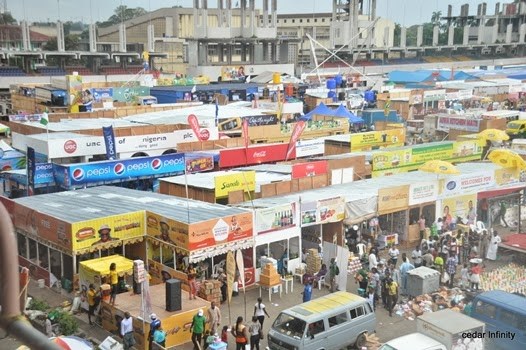
The UN Department of Economic and Social Affairs (UN DESA) has said that the global economy stands at a fragile turning point amid escalating trade tensions and growing policy uncertainties.UN DESA, in a report published on Thursday, stated that tariff-driven price pressures were adding to inflation risks, leaving trade-dependent economies particularly vulnerable.
It stated that higher tariffs and shifting trade policies were threatening to disrupt global supply chains, raise production costs, and delay key investment decisions – all of this weakening the prospects for global growth. The economic slowdown is widespread, affecting both developed and developing economies around the world, according to the report.For instance, in the United States, growth is projected to slow “significantly”, as higher tariffs and policy uncertainty are expected to weigh on private investment and consumer spending.Several major developing economies, including Brazil and Mexico, are also experiencing downward revisions in their growth forecasts.China’s economy is expected to grow by 4.6 per cent this year, down from 5.0 per cent in 2024. This slowdown reflects a weakening in consumer confidence, disruptions in export-driven manufacturing, and ongoing challenges in the Chinese property sector.By early 2025, inflation had exceeded pre-pandemic averages in two-thirds of countries worldwide, with more than 20 developing economies experiencing double-digit inflation rates.This comes despite global headline inflation easing between 2023 and 2024.Food inflation remained especially high in Africa, and in South and Western Asia, averaging above six per cent. This continues to hit low-income households hardest.Rising trade barriers and climate-related shocks are further driving up inflation, highlighting the urgent need for coordinated policies to stabilise prices and protect the most vulnerable populations.“The tariff shock risks hitting vulnerable developing countries hard,” Li Junhua, UN Under-Secretary-General for Economic and Social Affairs, said in a statement.As central banks try to balance the need to control inflation with efforts to support weakening economies, many governments – particularly in developing countries – have limited fiscal space. This makes it more difficult for them to respond effectively to the economic slowdown.For many developing countries, this challenging economic outlook threatens efforts to create jobs, reduce poverty, and tackle inequality, the report underlines. (NAN)
